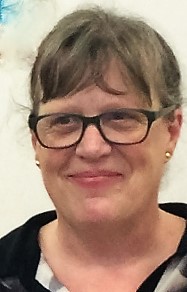Poll: Which is the main way you have acquired knowledge in your area of expertise? Thread poster: ProZ.com Staff
|
|---|
This forum topic is for the discussion of the poll question "Which is the main way you have acquired knowledge in your area of expertise?".
View the poll results »
| | | | | Accumulation of translation experience | Jul 24, 2017 |
I don’t have just one area of expertise as I started out some 40 years ago as a generalist translator and slowly but surely over the years I left some areas I wasn’t comfortable with and gained experience in others, sometimes through self-teaching and area-specific training.
| | | | | A combination of the above | Jul 24, 2017 |
A degree in Japanese (B.A. (hons)) - helps you understand the fine details of the language
Self-teaching (I don't have an aversion to reading books) - helps you learn the basics of the area of expertise and more
Area-specific training (lots of factory visits, product orientations) - helps you learn what text books don't teach you
| | | | Gudrun Maydorn (X) 
Germany
Local time: 11:40
English to German
+ ...
| Working in-house in industry | Jul 24, 2017 |
I specialise in medicine, medical instruments and mechanical engineering and before freelancing I acquired my specialist knowledge through many years of working in-house:
a) in the medical field, including daily contact with doctors and medics
b) in the technical field, including ready access to mechanical engineers and machinery.
[Bearbeitet am 2017-07-24 10:38 GMT]
[Bearbeitet am 2017-07-24 10:39 GMT]
| | |
|
|
|
A first joint-honours degree in English Law and French Language and Contemporary Studies (Politics and History), taught in French with the second year abroad in a French uni. That was where the colloquial understanding/speaking really started. Then one year at law college after having a "break" (working in the legal department of a statutory professional body).
Professional experience (legal/insurance): bilingual department in marine cargo insurance in the City and then civil litig... See more A first joint-honours degree in English Law and French Language and Contemporary Studies (Politics and History), taught in French with the second year abroad in a French uni. That was where the colloquial understanding/speaking really started. Then one year at law college after having a "break" (working in the legal department of a statutory professional body).
Professional experience (legal/insurance): bilingual department in marine cargo insurance in the City and then civil litigation in a provincial firm of solicitors with a couple of cases on the go requiring good French.
Moving from the UK to Brittany working in a sail loft. Marrying an ocean-racing yachtsman, eating, sleeping, breathing ocean racing. Hanging around boatyards, discussing build decisions, choice of material, techniques, composites, meterology, etc.
Returning to study (biology and neuroscience) and ultimately clinical neuropsychology.
Each feeds off the other generating new interest and leading me to explore new related areas of interest, sometimes just with personal reading and finally leading me to a career change, although I will continue to translate.
[Edited at 2017-07-24 10:30 GMT] ▲ Collapse
| | | | Adam Jarczyk 
Poland
Local time: 11:40
Member (2009)
English to Polish
+ ...
| A combination of the given options | Jul 24, 2017 |
* My earned degree in EE (from Silesian Technical University)
* Prior work experience in industry
* My own academic research and teaching
* My work experience as a university sysadmin
* Very high class language tuition, plus the fact that I act as Polish representative in international contacts and English is the main language of exchange, be that in spoken or written form
* The fact that I have learned to read at age 4 and have be... See more * My earned degree in EE (from Silesian Technical University)
* Prior work experience in industry
* My own academic research and teaching
* My work experience as a university sysadmin
* Very high class language tuition, plus the fact that I act as Polish representative in international contacts and English is the main language of exchange, be that in spoken or written form
* The fact that I have learned to read at age 4 and have been reading several books per week ever since
* My inborn curiosity about everything and the related need for effective research on my own and with the help of my network of experts
* A love for traveling and the related view on many different countries and situations
* and probably several more contributing factors ▲ Collapse
| | | | Kay Denney 
France
Local time: 11:40
French to English
I would say that I'm mostly self-taught. For fashion translations I had a little head-start in that my mother taught me dress-making so I knew some of the jargon, but I have had to do a lot of research and learning on the job.
Mainly an attitude in which "how on earth would I say that" drives my curiosity.
| | | | bizisyl
Local time: 07:40
English to Spanish
+ ...
| A combination too...plus... | Jul 24, 2017 |
- A degree in EFL/ESL
- 35-yr experience in teaching both English and Spanish as FL/SL
- advanced English language teaching at Teacher Training College in Argentina
- self-teaching on several topics I'm basically curious about
- 35-yr translating and interpreting experience in a variety of fields in several companies (e.g. pharmaceutical engineering and GMS walkthroughs and gembas, quality manuals and SOPs, commercial and HHRR related docs, in-company training courses) a... See more - A degree in EFL/ESL
- 35-yr experience in teaching both English and Spanish as FL/SL
- advanced English language teaching at Teacher Training College in Argentina
- self-teaching on several topics I'm basically curious about
- 35-yr translating and interpreting experience in a variety of fields in several companies (e.g. pharmaceutical engineering and GMS walkthroughs and gembas, quality manuals and SOPs, commercial and HHRR related docs, in-company training courses) and for a bilingual school network (education related material for international events and for local use)
- as an international speaking examiner, keeping abreast of latest assessment issues, from young learners to proficiency levels
- leading an international exchange program with the US has also helped me keep up with my US/Argentine 'teenage' vocabulary 
- binge watching current series on topics I work less frequently on  (excellent excuse!!!) (excellent excuse!!!)
- and my love for travelling and getting to know other cultures as frequently as I can!! ▲ Collapse
| | |
|
|
|
Mario Freitas 
Brazil
Local time: 07:40
Member (2014)
English to Portuguese
+ ...
| With the majority | Jul 24, 2017 |
Theoretical studies, titles, degrees, etc. are good knowledge about the language itself, but if you work in any area other than literature, education or language, they become secondary as compared to you rexperience in specific fields. There is no doubt about that.
| | | |
University study, supplemented by long experience and lots of research (as i specialise in specific fields of technical translation, by definition my subjects are constantly advancing). That's what makes my work so interesting!
| | | | Muriel Vasconcellos (X) 
United States
Local time: 02:40
Spanish to English
+ ...
| Accumulation of everything | Jul 24, 2017 |
I've been translating more years than I care to admit. I learn from every job I do. I also learned invaluable lessons from my senior (and contemporary) colleagues when I worked in-house for 20-plus years--but then, that's part of the accumulation, isn't it?
Oh, and I received years of coaching from an M.D. boss who used to meet with me every morning before the day's activities got under way. I should give him a lot of credit, too.
[Edited at 2017-07-24 19:57 GMT]
| | | | | | To report site rules violations or get help, contact a site moderator: You can also contact site staff by submitting a support request » Poll: Which is the main way you have acquired knowledge in your area of expertise? | Wordfast Pro | Translation Memory Software for Any Platform
Exclusive discount for ProZ.com users!
Save over 13% when purchasing Wordfast Pro through ProZ.com. Wordfast is the world's #1 provider of platform-independent Translation Memory software. Consistently ranked the most user-friendly and highest value
Buy now! » |
| | Anycount & Translation Office 3000 | Translation Office 3000
Translation Office 3000 is an advanced accounting tool for freelance translators and small agencies. TO3000 easily and seamlessly integrates with the business life of professional freelance translators.
More info » |
|
| | | | X Sign in to your ProZ.com account... | | | | | |













